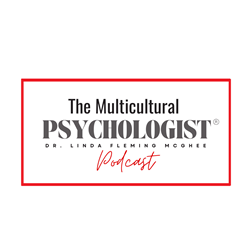Applied and Empirical Perspectives on Personality and the COVID-19 Pandemic (2 CEs)
SPA E-Learning Center
Abstract
In addition to increased mortality risk and the general dangers posed to physical health, the COVID-19 pandemic has led to widespread disruptions in daily social functioning and adverse psychological outcomes for many members of the general public. Personality factors relevant to coping and resilience, affect regulation, and interpersonal functioning have emerged as constructs of considerable importance for both behavioral health intervention and predicting long-term adaptation and health outcomes. This panel will feature presentations by researchers and clinicians practicing across a wide range of institutional contexts, including academic medical centers, national research laboratories, university settings, and long-term residential treatment facilities. Presenters will offer diverse perspectives on the relevance of personality theory and assessment for understanding interpersonal functioning and mental health during the COVID-19 pandemic. Dr. Lewis will first report findings from a general adult sample that show different longitudinal trajectories of suicide risk for individuals with anxious versus avoidant attachment types, with a particular focus on the influence of daily social contact as a protective factor against suicidal ideation during periods of social distancing. Dr. Roche will then share empirical findings from a longitudinal study of university students examining associations between interpersonal problems, COVID-19-related stressors, and daily social conflict arising from disagreements about pandemic-related safety measures. Next, drawing on emerging findings from a multidisciplinary study of “long hauler” patients, Dr. Lukowitsky will report findings on the prevalence of psychiatric symptoms and negative affect within patients contending with persistent physical health impairment following resolution of a COVID-19 diagnosis, with consideration for how these experiences may impact long-term recovery and clinical outcomes. Finally, reporting from the front lines of risk management and systems-based intervention, Dr. Waugh will discuss the utility of assessment psychology skills and perspectives in the development of a COVID-19 defense program implemented at the largest National Laboratory in the United States, which has been nationally recognized for its excellence and innovation. In his Discussion, Dr. Meehan will consider the broad implications of these presentations and findings for understanding the unique contributions of personality assessment for post-pandemic recovery (broadly defined at both individual, institutional, and community levels).
Chair
Katie Lewis | Austen Riggs Center
Discussant
Kevin Meehan | Long Island University
Goals & Objectives
- Attendees will be able to describe three personality-based factors associated with poor mental health outcomes during the COVID-19 pandemic.
- Attendees will be able to discuss the application of assessment psychology methods to management of large-scale organizational health and screening programs.
- Attendees will be able to list three personality characteristics associated with interpersonal conflict during the COVID-19 pandemic.
Attachment, Social Contact, and Suicidality during COVID-19
Katie Lewis | Austen Riggs Center
Michael Roche | West Chester University
Interpersonal Problems in the COVID-19 Era
Michael Roche | West Chester University
Sydney Neil | Austen Riggs Center
Katie Lewis | Austen Riggs Center
Psychiatric Symptoms and Negative Emotions Among COVID-19 "Long Haulers"
Mark Lukowitsky | Albany Medical College
Jeffrey Winseman
Victoria Balkoski
Anupama Tiwair
Marc Judson
Amit Chopra
Boris Shkolnik
Ali Al-Tarsheh
Assessment Psychology Takes on COVID-19
Mark Waugh | Oak Ridge Psychotherapy

